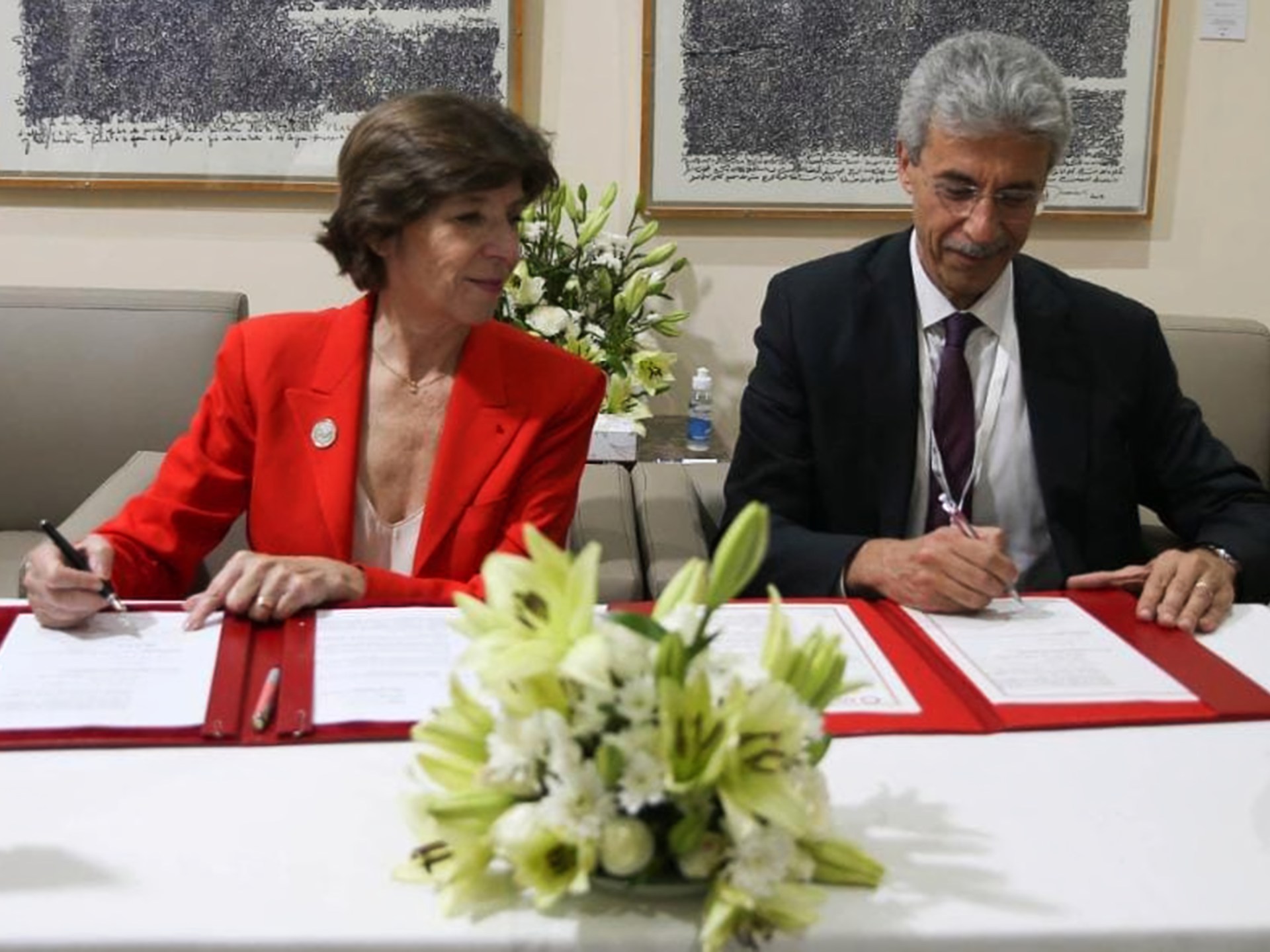Yesterday, Saturday, the governments of Tunisia and France signed a financing agreement under which Paris grants Tunisia a loan worth more than $206 million, which will be allocated to support the budget and to help it face difficult economic conditions.
This came on the sidelines of the launch of the 18th Francophone Summit on the island of Djerba, southeast of Tunisia, with the participation of 31 heads of state and government, according to a statement by the Tunisian Ministry of Economy and Planning.
The statement said that Tunisian Minister of Economy and Planning Samir Said and French Foreign Minister Catherine Colonna signed a financing agreement between Tunisia and France worth 200 million euros, which will be allocated to support the budget and activate the reform program.
According to the statement, the Tunisian minister expressed his satisfaction with the level of bilateral cooperation between Tunisia and France, noting that the agreement signed between the two countries reaffirms keenness to continue supporting Tunisia in carrying out its reform programs with the aim of restoring balances and achieving economic recovery.
The Tunisian minister reviewed the most prominent reforms recently approved by the Tunisian government related to improving the business climate, liberalizing the initiative, and reforms to improve the efficiency of implementing public and private projects.
For her part, Colonna stressed, according to the statement, the strength and deep-rooted relations between the two countries, stressing the importance of the reform program that has been set and which will help Tunisia to gradually overcome the economic and social difficulties.
French welcome
For his part, French President Emmanuel Macron announced yesterday, Saturday, to his Tunisian counterpart, Kais Saied, that his country would grant a loan to Tunisia.
A statement issued by the Elysee stated that "the President of the Republic renewed France's support for Tunisia and the Tunisian people in facing the challenges facing the country."
The French President welcomed "the constructive and open dialogue between the Tunisian government and the International Monetary Fund, in the hope that it will lead to a final agreement."
It is noteworthy that the reform program pursued by the Tunisian government and stipulated by the International Monetary Fund includes financial and tax reforms aimed at spurring growth and investment and improving the business climate, including the restructuring of public institutions and control of the wage block.
Tunisia - whose debts exceed 100% of GDP - reached a preliminary agreement with the International Monetary Fund in mid-October to obtain a new loan of about two billion dollars, to be disbursed in installments starting next December.
Meanwhile, the Tunisian Minister of Economy and Planning said yesterday, Saturday, at the Francophone Summit that his country is seeking an international partnership to establish investment projects worth 10 billion Tunisian dinars ($3.2 billion).
The Tunisian minister stressed that the recent agreement between Tunisia and the International Monetary Fund opened the doors again for the country to attract investments and financing, and was a very strong signal to the rest of the international financiers.
He explained that this agreement will allow Tunisia to improve the investment climate in order to finance projects, especially those that fall within the framework of partnership between the public and private sectors.
Tunisia is witnessing a severe economic crisis, exacerbated by the repercussions of the outbreak of the Corona pandemic, and the high cost of importing energy and basic materials as a result of the Russian-Ukrainian crisis.
Inflation in Tunisia continues to rise, reaching 9.1% last September, up from 8.6% in the previous August, amid the continued fluctuation of the abundance of basic commodities locally, and the rise in their prices globally.

